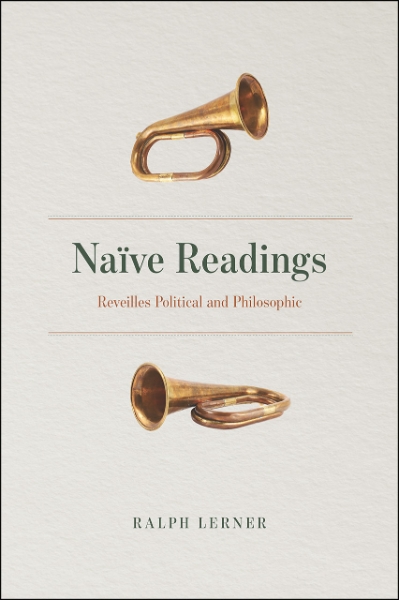
The complete surviving works of Epictetus, the most influential Stoic philosopher from antiquity.
“Some things are up to us and some are not.”
Epictetus was born into slavery around the year 50 CE, and, upon being granted his freedom, he set himself up as a philosophy teacher. After being expelled from Rome, he spent the rest of his life living and teaching in Greece. He is now considered the most important exponent of Stoicism, and his surviving work comprises a series of impassioned discourses, delivered live and recorded by his student Arrian, and the Handbook, Arrian’s own take on the heart of Epictetus’s teaching.
In Discourses, Epictetus argues that happiness depends on knowing what is in our power to affect and what is not. Our internal states and our responses to events are up to us, but the events themselves are assigned to us by the benevolent deity, and we should treat them—along with our bodies, possessions, and families—as matters of indifference, simply making the best use of them we can. Together, the Discourses and Handbook constitute a practical guide to moral self-improvement, as Epictetus explains the work and exercises aspirants need to do to enrich and deepen their lives. Edited and translated by renowned scholar Robin Waterfield, this book collects the complete works of Epictetus, bringing to modern readers his insights on how to cope with death, exile, the people around us, the whims of the emperor, fear, illness, and much more.
CUSTOMER NOTE: THE HARDCOVER IS FOR LIBRARIES AND HAS NO JACKET.
480 pages | 1 line drawings | 6 x 9 | © 2022
"In this volume, Waterfield provides a translation of the extant works of Epictetus, an accessible introduction, and helpful historical, scholarly notes. . . . Waterfield provides essential philosophical ideas (for example, one should focus on what is in one's full control and let go of what is not), a condensed list of Stoic exercises, and specific references to Epictetus's works. . . . Recommended."
"Waterfield’s clear, readable translation brings out Epictetus’ humour and conversational tone as well as his philosophical vision."
London Review of Books
"A scrupulously rendered faithful rendition of both the substance and tone of the original. . . . I am grateful for this new edition of Epictetus, not only for its deft literary style but for Waterfield’s erudite and helpful annotations. It is a privilege to have the works of this great thinker offered to us with such excellence."
Richard Smoley | Parabola
“This is an excellent book, well-produced and presented. a stimulating work of scholarship.”Classics for All
"It is a privilege to have the works of this great thinker offered to us with such excellence."“This new translation of Epictetus by Waterfield is very welcome indeed. Both the translation and the notes help to make Epictetus more accessible than ever. Especially valuable is the introduction, which expertly situates Epictetus’s thought within wider Stoic philosophy and touches on many of the key debates in recent scholarship.”
John Sellars, author of The Pocket Epicurean
“This is now the best English translation of Epictetus available. Idiomatic yet accurate, it captures Epictetus’s voice in all its moods: direct and personal, often brusque and challenging, sometimes ironic, sometimes humorous. The introduction and notes are a reliable and up-to-date guide to the most influential Stoic in today’s world.”
Brad Inwood, author of Ethics after Aristotle
“Waterfield is a gifted writer and a superb classicist whose translation makes Epictetus come alive on the page. His introduction, at once scholarly and highly accessible, sheds new light on the texts and philosophy of this famous Stoic popularizer. Epictetus’s ‘live talks,’ preserved by Arrian, mix street preacher with acerbic comic. This edition of the complete works of Epictetus will be prized by all interested in delving into Stoic philosophy. We couldn’t ask for a better guide than Waterfield.”
Nancy Sherman, author of Stoic Wisdom: Ancient Lessons for Modern Resilience
Preface
Note on the Translation
Introduction
Handbook
Discourses
Preface
1.1: What is and is not up to us
1.2: How to preserve conformity with one’s role in every situation
1.3: How one may proceed from the fact that God is the father of humankind to its consequences
1.4: On progress
1.5: Against the Academics
1.6: On providence
1.7: On the use of changing arguments, hypothetical arguments, and the like
1.8: That our faculties are not without danger for uneducated people
1.9: How one may proceed from the fact of our kinship with God to its consequences
1.10: To those who are intent on advancement at Rome
1.11: On family affection
1.12: On contentment
1.13: How to do whatever we do in a way that pleases the gods
1.14: That the Deity watches over us all
1.15: The prospect held out by philosophy
1.16: On providence
1.17: On the indispensability of logic
1.18: That one should not get angry with people for their mistakes
1.19: The proper attitude to have toward tyrants
1.20: On reason and its ability to examine itself
1.21: To those who want to be admired
1.22: On preconceptions
1.23: Against Epicurus
1.24: How to combat difficult circumstances
1.25: The same topic
1.26: What is the law of life?
1.27: How many ways are there for impressions to arise, and what resources should we have ensured that we have at hand to help us with them?
1.28: That we ought not to get angry with people, and what is trivial or important in human life
1.29: On self-possession
1.30: What we should have at hand in difficult circumstances
2.1: That confidence and caution are not incompatible
2.2: On tranquility
2.3: To those who recommend people to philosophers
2.4: To a man who had once been caught in adultery
2.5: How are greatness of mind and carefulness compatible?
2.6: On indifference
2.7: The correct way to go about divination
2.8: The essence of goodness
2.9: That despite our inability to fulfill our potential as human beings, we assume the mantle of philosophy as well
2.10: How the names that a person bears reveal what behavior is appropriate for him
2.11: The starting point of philosophy
2.12: On argument
2.13: On anxiety
2.14: To Naso
2.15: To those who cling obstinately to certain of their decisions
2.16: That in practice we fail to apply our judgments about what is good and bad
2.17: How to apply preconceptions to particular cases
2.18: How to combat impressions
2.19: To those who take up philosophy just to enhance their conversation
2.20: Against the Epicureans and Academics
2.21: On inconsistency
2.22: On friendship
2.23: On rhetoric
2.24: To someone who Epictetus thought did not have what it takes
2.25: On the indispensability of logic
2.26: What is it that makes a mistake a mistake?
3.1: On personal adornment
3.2: The training a person needs if he is to progress, and that we neglect what is most important
3.3: What the material is that a good person works with, and what the primary orientation of one’s training should be
3.4: To someone who expressed immoderate support in the theater
3.5: To those who quit school because of illness
3.6: A miscellany
3.7: To the Corrector responsible for the free Greek cities, who was an Epicurean
3.8: How we should train ourselves to deal with impressions
3.9: To an orator who was on his way to Rome for a lawsuit
3.10: How to bear illness
3.11: A miscellany
3.12: On training
3.13: What loneliness is and the kind of person who is lonely
3.14: A miscellany
3.15: That we should approach everything with circumspection
3.16: That venturing into company requires caution
3.17: On providence
3.18: That there is no need for news to worry us
3.19: How a non-philosopher’s stance differs from that of a philosopher
3.20: That it is possible to turn every external circumstance to good account
3.21: To people who too readily set out to become lecturers
3.22: On Cynicism
3.23: To those who give readings and lectures just to be admired
3.24: On the necessity of not being attached to things that are not up to us
3.25: To those who fail to see their projects through to completion
3.26: To those who fear destitution
4.1: On freedom
4.2: On social intercourse
4.3: What should be exchanged for what
4.4: To those who are intent on living a quiet life
4.5: Against those who are pugnacious and fierce
4.6: To those who find the pity of others distressful
4.7: On freedom from fear
4.8: To those who rush to assume the guise of philosophers
4.9: To someone who had lapsed into shamelessness
4.10: What we should treat as unimportant and what should matter to us
4.11: On cleanliness
4.12: On paying attention
4.13: On those who too readily share personal information
Fragments
Notes
Textual Notes
Recommended Reading
Index


Mark B. N. Hansen

Lucius Annaeus Seneca

Get the latest updates on new releases, special offers, and media highlights when you subscribe to our email lists!